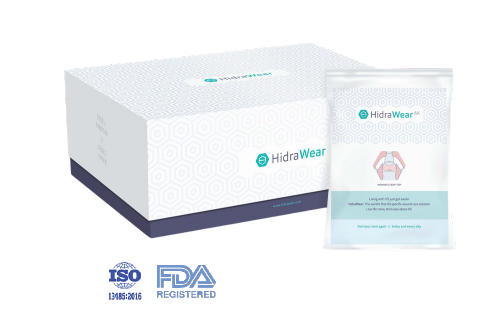If you are reading this, congratulations may be in order. This is an exciting time. Or perhaps you are just curious. Whichever, there are things you should know about pregnancy and breastfeeding with HS.
Like any chronic illness, HS may impact your pregnancy journey. But as with all things HS, having the information you need is key. Before we go any further, some housekeeping.
A note of caution. I am not a doctor. So, you need to talk through any health decisions with your doctor. I intend this post to be used as an overview of the current advice. No more, no less.
You should also know that most medical studies don’t use pregnant women. This is in case what doctors are testing isn’t safe. While it might seem like a serious limitation, the last thing any researcher wants is to do is harm.
Pregnancy
Maybe you have heard that HS symptoms improve with pregnancy. Or perhaps that they worsen. A 2020 paper found pregnancy affects different women with HS in different ways. Researchers surveyed 279 pregnant women. 34.9% said their symptoms worsened. 36.6% said they improved. While 28.7% had no change at all.
While you are pregnant, some treatments for HS may not be suitable for you. According to the NHS, retinoids cannot be taken during pregnancy. But many oral and topical antibiotics are safe.
While pregnant, you may be at a higher rate of anaemia or diabetes. Rates of anaemia are higher in people with HS and those pregnant. Also, HS is a risk factor for diabetes, as is pregnancy. Diabetes in pregnancy is called gestational diabetes.

A Note on Mental Health
We know that people with HS have higher rates of depression and anxiety. Pregnancy can also exacerbate existing depression and anxiety. If you feel down or have symptoms of both or either, talk to your doctor. Pregnant women can be treated for depression and anxiety. Your doctor will know how to manage that and your HS.
Giving Birth
The HS stage you have and whether you have a flare might impact how you deliver your baby. For example, severe groin or genital lesions may mean a natural birth may not be for you. If you decide on a caesarean section, the scar’s placement may also need to be planned.
Whatever you decide, make sure it is what you want. HS will present some uncomfortable problems. But this is your time and your body. It is doing an amazing thing.

Breast-feeding
The good news here is that most women can breastfeed with HS. But active flare-ups might make it uncomfortable. Lesions should be treated before breastfeeding. And you need to monitor your breast lesions for infection.
Some antibiotics are safe during breastfeeding. But always consult with your doctor when it comes to medication. For discomfort, you can also apply a warm compress or topical ointments.

Conclusion
HS presents some considerations in pregnancy and for how you care for your baby. But people with HS do have babies. So, if you are pregnant or hope to be in the future, it is possible. You just need to make some plans.
Sit down with your doctor early. Know what you want to do and make sure you have the information you need. If you are currently expecting, congratulations, and we wish you a happy and safe pregnancy and birth.
About the Author

Shannon Sweeney is MA student in Community Research & Journalism from Ireland. She is also living with HS and has a keen interest in lifestyle, wellbeing and hidradenitis suppurativa.

EXCITING NEWS
HidraWear is now also available through Insurance
HidraWear is now widely available through a broad range of Insurance providers including Medicare and Medicaid. It can be prescribed by your provider, billed directly to your insurer and delivered right to your door. Request an information pack to give you all the detail you need to get started.


